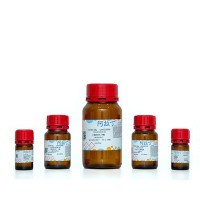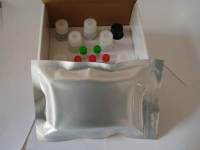Enzyme Assays for cGMP Hydrolyzing Phosphodiesterases
互联网
585
Cyclic nucleotides (cAMP and cGMP) as second messengers regulate a wide variety of biological processes such as cellular growth, secretary signaling, and neuroplasticity. These processes can be regulated by increasing the synthesis of cyclic nucleotides (cyclases), by regulation of cAMP and cGMP effector proteins such as cAMP- and cGMP-dependent protein kinases, or by regulation of cyclic nucleotide degradation via cyclic nucleotide phosphodiestases (PDEs). At present PDEs are classified into 11 gene families, each containing several different isoforms and splice variants. All PDEs share considerable homology in their catalytic domains but substantially differ in their N-terminal regions, that contain different types of regulatory. The different PDEs show complex substrate specificity. PDE5, PDE6, and PDE9 are considered to be cGMP specific, while PDE1, PDE2, PDE3, PDE10, and PDE11 can hydrolyze both cGMP and cAMP. PDE4, PDE7, and PDE8 use mainly cAMP as their substrates at physiological substrate levels. Here we describe two methods designed for measuring cGMP (cAMP) hydrolytic activities. The first one is a traditional method using radioactive substrates and the second one is a recently developed nonradioactive method based on Isothermal Titration Calorimetry.








